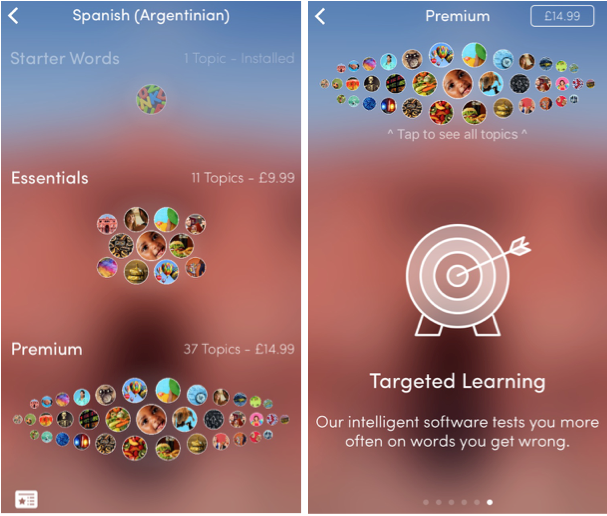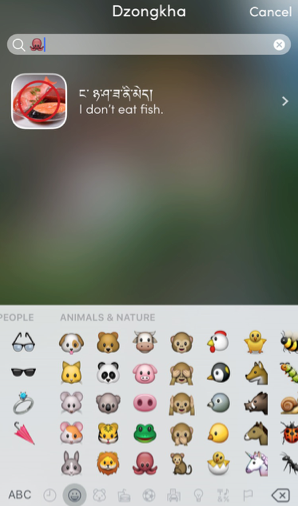The Difficulties of Translation: Love Translated
To language enthusiasts, it’s sometimes a bit of a shock to see how a favourite book or film title is rendered in another language. A common phrase, especially since the film which took it as a title, is ‘Lost in Translation’, the idea of some slight nuance being dropped between one language and another.
But sometimes it’s more than just a little nuance. Sometimes it’s a total transformation of the title, and a total change in meaning. Consider the phrase ‘lost in translation’ itself: a clever play on the idea of physical loss and metaphoric loss, it contains both the sense of merely overlooking something, and of being geographically lost- as well as emotionally bewildered. It’s a poignant phrase. Now consider the title of this blog post: ‘The Difficulties of Translation’ (Трудности перевода) is the Russian title for the same film, while ‘Love Translated’ (L’amore tradotto) is the distinctly simplified Italian variant.
Italian also simplifies one of the most beautiful film titles of this age: ‘Eternal Sunshine of the Spotless Mind’. The original title conjures images of endless hope, while the Italian ‘Se mi lasci ti cancello’ (If you leave me, I’ll delete you) narrows the ambit significantly and reduces the complex plot to the mere idea of a lovers’ tiff. Similarly, ‘The Catcher in the Rye’, the incredibly evocative title of Salinger’s great classic, certainly loses its panache and the protagonist’s sense of anonymity in the Italian edition, ‘Il giovane Holden’ (The Young Holden).

Needless to say, this works both ways, and anyone who is familiar with Proust’s famous work ‘À la recherche du temps perdu’ will be disgusted by the rather trite English version, ‘Remembrance of Things Past’ (thankfully renamed in more recent publications to ‘In Search of Lost Time’). Similarly, Camus’ ‘L’Étranger’ is only ever translated as ‘The Outsider’ or ‘The Stranger’ in English- unlike the French, English lacks a word which encompasses both nuances at once.
Got any favourite translations of titles in other languages? We’d love to hear them, whether you think they’re better or worse than the original!
Overcoming anxiety when speaking a foreign language in public
Thanks to guest blogger Eve Pearce, who’s written today’s really helpful article about something every language learner has had to deal with at some point – overcoming the fear of actually speaking it. If you have any other top stress-busting tips, we’d love to hear about them in the comments!
Seasoned foreign language teachers will probably tell you that one mark of a successful student in terms of language learning, is ‘openness’, ‘daring’ and sometimes, even ‘cheek’. The more free of self-consciousness and shame a student is, the more likely they are to progress, since one vital part of language learning is using it – having conversation with other speakers, communicating, living the language one is learning.
It is easier said than done for some learners, however, especially those suffering from anxiety. Far from being an exotic condition, anxiety is actually the most common mental condition in the US, the UK and many other countries. The daily stresses and demands of life can invoke our ‘fight or flight’ response, raising our heart and breathing rates and sometimes, even causing debilitating panic attacks.
As a language learner, anxiety may have stopped you in your tracks. It may have made you fear situations and people you do not know well. It can stop you from making many important changes in your life, or from learning a new language and interacting with other students and foreign language speakers. Anxiety can play big tricks on body and mind; excess oxygen levels (produced by breathing too rapidly) can cause muscles to cramp and can cause hyperventilation. Sometimes, the problem is mild but still uncomfortable – for instance, a person may fear having to get up in front of a class and make a speech in another language.
If you are suffering from anxiety, and you feel like it is interfering with your ability to progress as a foreign language learner, try some of the most effective relaxation techniques known to those who have recovered from this condition. Foremost among these techniques is abdominal breathing. It is quite simple – just breathe in a large amount of air through your nose, allowing your abdomen to expand. Keep the breath in for a few seconds then exhale, slowly, through your mouth. Do this various times and you will note that your heart rate drops, even when you are very stressed.
Yoga is another highly successful technique at quelling anxiety and stress, so much so that it is offered at practically every top rehabilitation centre for addiction and for eating disorders. Yoga is such an excellent way to battle anxiety because it can be practised by people of all fitness levels and ages, it is cheap, and also a proven method of lowering stress hormone (cortisol) levels. It involves a connection between body, mind and spirit. Controlled breathing is also used, and various poses (asanas) are performed.
Sometimes, mindful meditation can be practised during a yoga session, yet meditation is also useful on its own to calm stress. If you have anxiety, you should definitely set aside a few moments during the day to meditate. There are numerous free online meditation sessions lasting minutes, as well as meditation and breathing apps for your phone, which you can follow while you are in the car or on the bus to work or school.
If you try these methods out and you do not improve, or your anxiety is very severe, then expert help may be required. A good therapist will be able to help you in a handful of session, by utilizing techniques such as CBT (Cognitive Behavioral Therapy), which aims to help patients identify stress triggers and find positive ways to channel tension.
If you have an upcoming talk in a foreign language and you are worried about what others will think if your delivery isn’t perfect, remember that most speakers make mistakes and even suffer from nerves before they begin. Language isn’t a competition; it is a progression and it pays to keep in mind that even if the worst possible outcome occurs (e.g. you forget your speech or you feel too nervous to speak), the event is not the be-all, end-all of your language learning experience. There will always be another chance, further down the line, to do that exam or speak before an audience.
Through relaxation techniques, breathing and therapy, you soon discover that anxiety is little more than a trick – it is your body’s way of choosing ‘flight’ (escape) when the ‘fight or flight’ response kicks in. By simply breathing for a few minutes until your heart rate settles, you can stop anxiety in its tracks – and begin to view language learning as the enjoyable pursuit it really is.
Eve Pearce
10 famous faces who speak other languages
We’ve posted previously about movie and sport stars who speak other languages. But it turns out they’re not the only famous linguists, so here are a few more. Prepare to be impressed…
Audrey Hepburn
There was much more to the star of Roman Holiday and Breakfast at Tiffany’s than her movie career. Audrey Hepburn was well known for her charity work with UNICEF, and after spending her childhood in Belgium, Britain and the Netherlands, she was also fluent in English, Dutch, French, Italian, Spanish and German.
Rita Ora
Rita Ora was born in Kosovo (then called Yugoslavia) to Kosovar-Albanian parents, moving to London when she was a year old. The pop star, model and X Factor judge speaks Albanian fluently and is proud of her heritage; last year she was named an honorary ambassador for the Republic of Kosovo.
Ellen Macarthur
Former yachtswoman Dame Ellen Macarthur learnt to speak French when she was 21 and living in a French boatyard while she prepared for a solo transatlantic race. She’s now fluent and says she would never have been so successful in her career without knowing the language, which helped her build relationships with other sailors and gain sponsorship.
Eddie Izzard
Comedian (and record-breaking marathon runner) Eddie Izzard is currently touring with his stand-up show Force Majeure, which he performs three times a night, in three languages: French, German and English. In 2014, he was named the Guardian’s public language champion, and told the newspaper: “There’s a political basis for me to learning other languages, because if we don’t come together in the world then the world’s not going to make it.”
JK Rowling
JK Rowling studied French and Classics at university, and when she came up with the idea for the Harry Potter series in 1990, she was working as a bilingual secretary for Amnesty International. She later moved to Portugal and split her time between teaching English as a foreign language and writing the best-selling books.
Mark Zuckerberg
The Facebook founder surprised everyone in 2014 when, during a visit to Tsinghua University in Beijing, he started speaking Mandarin – and continued for half an hour. Though his efforts got a mixed reception from the press, the audience seemed delighted – and we were pretty impressed, too.
Jon Heder
The star of Napoleon Dynamite is a member of The Church of Jesus Christ of Latter-day Saints, and served a two-year religious mission to Japan after high school, where he became fluent in the language. And though he now describes himself as “a little rusty”, he still sounds pretty good to us.
Tim Peake
Tim Peake is the first British astronaut to go to the International Space Station – but before leaving Earth he had to learn Russian (the language of the controls in the Soyuz capsule used to get to the ISS), and has described this as the hardest part of his 14 months’ training.
Tom Hiddleston
Okay so we already mentioned Tom Hiddleston in our last post, but frankly, we never get bored of listening to him speaking loads of languages – among them French, Spanish, Greek and Italian, plus some Mandarin, Russian and Korean. And he studied Latin at university…
Viggo Mortensen
The Lord of the Rings star was born in New York, but spent his childhood in Venezuela, Denmark and Argentina, leaving him fluent in English, Spanish and Danish. He also speaks some French and Italian, and understands Norwegian and Swedish.
Does your favourite celebrity make the list?
Stars and Specials: what’s new in uTalk
Our small office has been very busy recently preparing a big new update to uTalk, and we’re very happy to finally share it with you! Some of you may have already tried it – if you have we’d love to hear what you think.
So what’s new?
Stars and Specials
Stars are the biggest change within the new features, and it’s safe to say we’re all pretty excited about them! With the Stars, the more you play the more you get, so they’re basically in-game coins. By earning stars and achievements you can then buy additional topics or what we call uTalk Specials. These are extra topics that you may find helpful in various situations such as Camping, Driving, Sailing and many others.
Dashboard
We’ve introduced the Score Dashboard where you can see your points, your stars, uTalk Specials and Achievements. These are designed to keep you motivated; every time you get past a small milestone (like getting 30 correct answers in a row or try out half of the topics), we’ll reward you with stars that can be used to buy the uTalk Specials.
New-look store
The store inside the app where you can purchase extra topics has a brand new look too, which we think is nice to play with. We’ve added beautiful imagery and interactive descriptions of how the app features will help you learn, so you always know exactly what you’re getting.
Instant Search
Something that’s not new but always helpful to have is the search bar at the top of the screen that you can use to search for words when you’re in a rush. Plus, you can search with emojis too!
The uTalk app is free to download for iPhone and iPad, and you can try any of the languages for free with our Starter Pack. We’d love to hear from you so please get in touch at info@eurotalk.com or even better, if you love the update, leave us a review on the App Store and we’ll be your friends for life 🙂
Why children should learn a second language
The Scottish Government has committed to every child learning a second language at the age of 5. Alongside this, they’ll learn an additional language in P5, which means children will know 3 languages by the time they leave school. It’s called the 1+2 policy and we think it’s a great pledge, as there are so many reasons why children should learn another language.
Increase their skills
Earlier this week an article came out stating that ‘bilingual babies are smarter’. Growing up learning or hearing a second language helps to increase their learning capabilities including problem solving and memory. This means not only do children benefit from knowing a second language; it also helps them improve across all other subjects that they’re learning.
Future needs
This may seem like extreme forward planning, but as the world continues to internationalise, employers are looking to their potential employees for language skills. Business is conducted worldwide and the need to understand and communicate with other cultures is massive. Having the ability to learn a language at a young age is an excellent skill to have.
Enthusiasm
Secondary schools in the UK teach a foreign language in years 7 to 9, with it being optional for students to take a language at GCSE. Starting languages in primary schools could create the enthusiasm needed to help with the uptake of GCSE and A-level languages. It can help to show students that languages aren’t necessarily a risky option at GCSE/A-level, instead they are fun and there are ways that you can learn a language and do well with it!
Primary schools that have been a part of the Junior Language Challenge have found children love to learn languages. Those that get to the final of the challenge have had the chance to learn three new languages; many of them have chosen to enter again the year after too!
Multi cultural
There are such a large variety of cultures in the UK, in one primary school there are 20 different languages spoken. Not one of these speak English as a first language, so equipping children with the skills to learn a language will make it easier for them to pick up English and communicate with each other.
European Countries
In 2012 the European Commission report found only 9% of English students were reaching ‘independent learner’ level when it came to languages. This is tiny compared to Sweden’s 82% level; the UK is actually joint bottom when it comes to learning foreign languages. In Luxembourg children are offered the chance to learn 3 languages during their time at school. Clearly learning a language is an area the UK needs to invest in more – and Scotland are leading the way!






